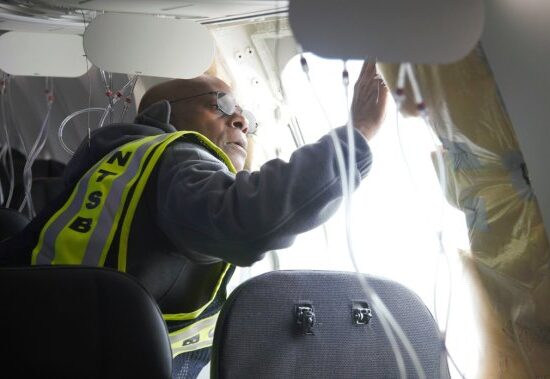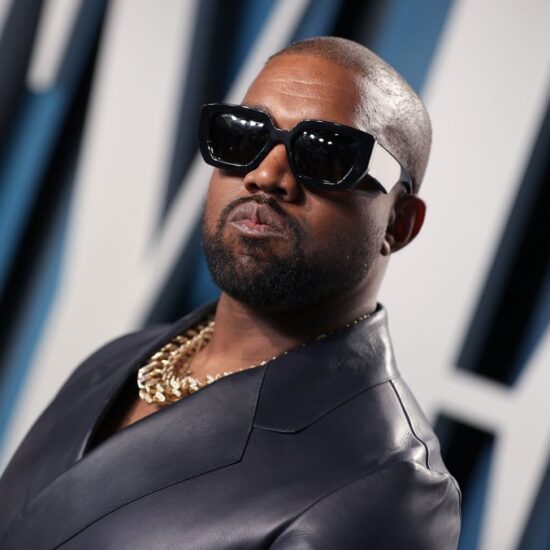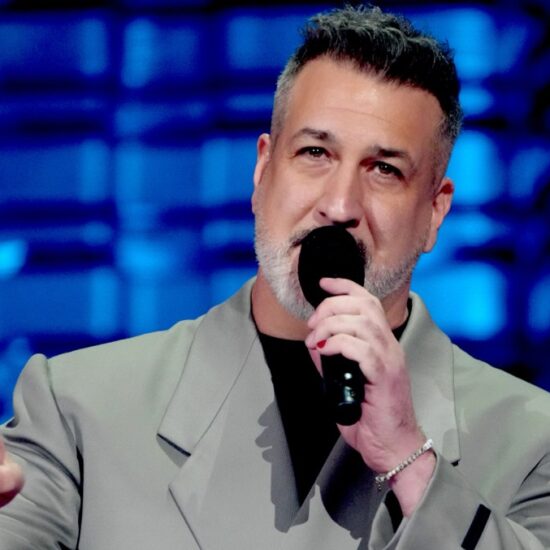
Two more senators are calling for restrictions on TikTok’s operations in the U.S., citing alleged risks to national security and consumer privacy presented by the Chinese-owned platform.
In the letter sent Thursday, U.S. Sens. Richard Blumenthal (D-Conn.) and Jerry Moran (R-Kan.) called on the Committee on Foreign Investment in the United States (CFIUS), which is currently investigating TikTok’s 2017 merger with Musical.ly, “to swiftly conclude its investigation and impose strict structural restrictions” between the platform and its Chinese parent company, ByteDance — including by “potentially separating” the two companies. The letter was addressed to U.S. Treasury Secretary and CFIUS chair Janet Yellen.
In the letter, Blumenthal and Moran cite a December disclosure by ByteDance — reported by The New York Times — that four of its employees obtained the data of several TikTok users, including two journalists, in an effort to locate the sources of suspected leaks to journalists of internal company conversations and documents.
Despite ByteDance’s assertion that it fired the employees involved, Blumenthal and Moran allege that the scheme was in fact perpetrated by a “formal ‘Internal Audit and Risk Control’ team” directed by senior executives, including TikTok CEO Shou Zi Chew.
“The incident also occurred while TikTok’s executives had repeatedly promised that Americans’ personal data was secure against such spying,” the letter reads, citing testimony given by TikTok’s vp/head of public policy, Michael Beckerman, to the Senate Commerce Committee’s Subcommittee on Consumer Protection in October 2021.
The letter goes on to claim that TikTok company engineers “continue to have dangerous access to Americans’ personal data and control over its algorithmic recommendation systems, access that continues enable this spying on journalists.”
The senators cite several more reports to bolster their case, including a December article in The Wall Street Journal reporting that TikTok’s product development and management — including oversight of its algorithmic recommendation system — remains based in China. Another article published by Forbes in August, which reported that roughly 300 current employees at TikTok and ByteDance work or have worked for Chinese propaganda outlets including Xinhua News Agency and China Global Television, is also held up as evidence to support restrictions.
Elsewhere, Blumenthal and Moran cite an October investigation by Consumer Reports that found TikTok tracks Americans — including those who don’t use the platform — by embedding “a tracking technology” on partner websites. “While this collection effort is ostensibly an advertising effort by the company, the transmission to TikTok of non-user IP addresses, a unique ID number, and information about what an individual is doing on a site provides a deep understanding of those individuals’ interests, behaviors, and other sensitive matters,” the letter adds.
Despite TikTok’s assurance that it no longer censors videos critical of the Chinese government and other authoritarian regimes, the senators additionally allege that the platform “continues to opaquely demote or remove certain content, including blocking LGBTQ accounts.”
TikTok “is clearly, inextricably dependent on ByteDance for its operations,” the letter concludes, “and therefore beholden to the government of China.”
Thursday’s letter is just the latest in a string of recent condemnations of TikTok by U.S. lawmakers. In December, President Joe Biden signed a bill that prohibits use of the platform by nearly 4 million government employees on devices owned by its agencies, joining at least 27 state governments and several universities that have passed similar measures. The same month, Sen. Marco Rubio (R-Flor.), Rep. Mike Gallagher (R-Wis.) and Rep. Raja Krishnamoorthi (D-Ill.) introduced a bill that would effectively ban TikTok and any other China-based social media platform from operating in the United States. And earlier this month, Sen. Michael Bennet (D-Col.), pushed Apple and Google to remove TikTok from their app stores over national security concerns, claiming the Chinese Communist Party could “weaponize” the platform against the United States by forcing ByteDance to “surrender Americans’ sensitive data or manipulate the content Americans receive to advance China’s interests.”
These lawmakers clearly weren’t assuaged by TikTok’s announcement in June that it had started routing U.S. user data to Oracle cloud servers located in the U.S., instituted audits of its algorithms and established a new department to solely manage U.S. user data for the platform.
Concerns about TikTok have been prevalent in other corners of the West, most prominently in Europe. In January, Zi Chew met with European Union officials over concerns about child safety and data privacy, among other matters. On Friday, TikTok’s general manager of operations in Europe, Rich Waterworth, attempted to allay some of those concerns in a blog post where he noted that the company plans to establish two additional European data centers, citing a commitment “to keeping our European community and their data safe and secure.” He added that the company is “continuing to deliver against” a data governance strategy they set out for Europe last year, which includes plans to further reduce employee access to European data, minimize data flows outside Europe and store European user data locally.
Zi Chew is slated to appear before the House Committee on Energy and Commerce on March 23, when he’s expected to comment on TikTok’s data security and user privacy policies, the app’s impact on children and ties with the Chinese Communist Party.













